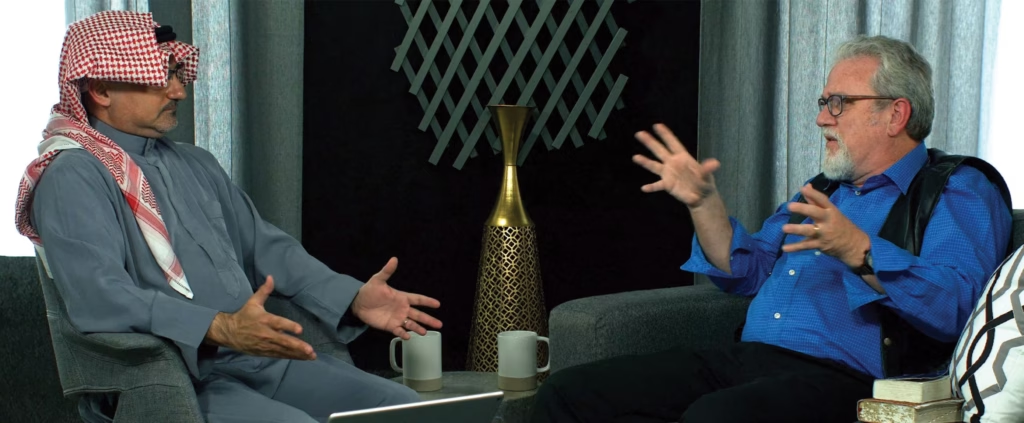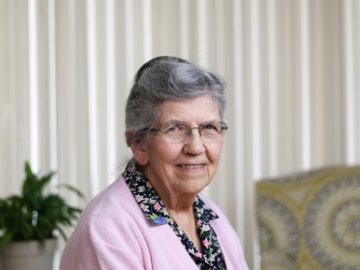
Apologetics course through Jay Smith’s veins.
His theological lineage includes Francis Schaeffer. The theologian discipled Jay’s missionary parents, who, in turn, discipled Ravi Zacharias, the globally renowned, Indian-born Christian apologist.
But rhetoric, he argues, is also in the DNA of India, his birthplace. It’s no coincidence the world’s most formidable apologists like Zacharias come from the subcontinent of India. For hundreds of years, they have held munazaras, formal debates, in public squares.
In the Indian subcontinent, debate is a social art.
The Indian subcontinent is now the epicenter of the Islamic world. India, alone, is to be the largest Muslim population globally by 2050.1 And Asians already make up more than 60 percent of the world’s Muslims (over 600 million), Arabs, by contrast, 20 percent.2
Thus, Jay engages the growing Muslim populations from Asia in styles of communication that emulate their own: apologetics and polemics. Christian apologetics is a defense of Christianity, polemics an offense against Islam, through theological and historical critiques.
Today Jay travels around the world equipping Christians to dialogue with Muslims and debating Muslim leaders. He’s also helped found the Pfander Centre for Apologetics, which studies Islamic theological and historical critique with the purpose of engaging Muslims with the gospel.
While having an impressive theological ancestry, Jay became an acclaimed apologist and polemicist through grit and a willingness to take a theological — and, sometimes, physical — beating.
In the 90s, his theological sparring partners, who were often combative, were almost exclusively more radical Muslims (Islamists) from South Asia. Much of their zealousness flows from their religious views: For example, in South Asia, 76 percent of Muslims believe individuals should be killed for abandoning Islam; 84 percent support sharia law; and 81 percent back extreme penalties, like severing hands of thieves.3
Devout and educated, such Muslims confronted Jay with questions unknown to modern Western Christian apologetics.
An Education in Hyde Park
Full of bravado, Jay arrived in London armed with master’s degrees in both Christian apologetics and Islamic studies — ready to engage Muslims with the gospel and to get a doctorate in polemics.
“I thought I knew everything,” he said, laughing. “Then I encountered Speaker’s Corner.”
For more than 160 years, individuals have been exercising free speech at the historical site located in Hyde Park.
There, the Muslim apologists arrived with Bibles overflowing with Post-it notes, each marking a supposed error in the biblical text.
They deftly attacked Christianity.
“I came back whipped and humiliated,” he said of challenging their theological arguments for the first time.
But he returned to Hyde Park the following Sunday. Each week, Jay was pummeled theologically and, on occasion, physically, as the agitated crowds harassed him.
Afterward, he documented their questions.
Within six months, he had a list of 50 recurring questions from Muslims about Christianity, most unidentified by modern Western Christian apologists. (Western apologetics address a secular framework: questioning the existence of God. But devout Muslims believe in God. Their concerns relate to the Trinity or divinity of Jesus.)
Soon, Jay garnered attention for his innovative research, and universities across England began to invite Jay to debate Muslim clerics. In 1995, a Cambridge University historian in Islamic history helped him outline 10 criticisms on Islam for a debate.
“To this day, no one has answered those 10 criticisms, and we have added many more to them,” said Jay.
Platform Opens Access to Question Islam
In 2005, YouTube was founded, unlocking doors to engage the Islamic world. In many societies adhering to Islam, barriers exist to questioning religion. So, in 2006, Jay created PfanderFilms, an outreach of the Pfander Centre.
The platform enables Muslims to investigate religious questions. In the last 20 years, Western historians have unearthed data undermining the historicity of much of Muhammad’s life and the text of the Qur’an.
Until now, such historical critique has been confined to the ivory tower. But PfanderFilms has become a bridge between Western academia and the Islamic world. It provides open access to groundbreaking theological and historical critique of Islam.
“We want Muslims to decide for themselves whether Islam holds up to its historical claims,” said Jay.
Today PfanderFilms has more than 3 million views, many from Muslims in countries hostile to the gospel.
Jay is mindful his apologetics and polemics were smelted in Speaker’s Corner. The Muslim apologists there refined his arguments, ridding them of theological sediment and inconsistencies, to extract apologetics speaking the language of his audience.
And in so doing, they taught Jay to boldly profess Jesus Christ to the Islamic world.
Notes
- “10 Countries with the Largest Muslim Populations, 2010 and 2050,” Pew Research Center, April 2, 2015. ↩︎
- “Mapping the Global Muslim Population: Asia-Pacific Overview,” Pew Research Center, October 7, 2009; “Demographics of Islam,” Berkley Center for Religion, Peace & World Affairs, Georgetown University, accessed Jan. 16, 2019. ↩︎
- “The World’s Muslims: Religion, Politics and Society,” Pew Research Center, April 30, 2013. ↩︎


